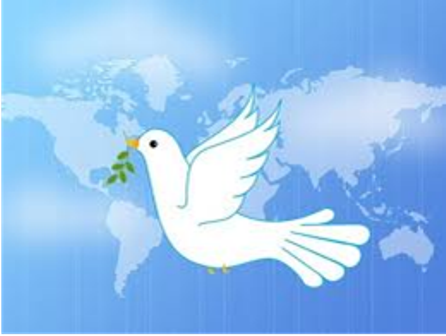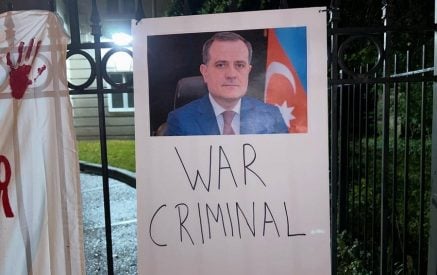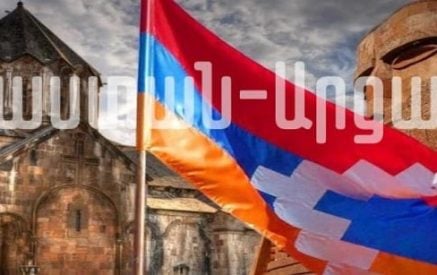We, the undersigned citizens of Azerbaijan, Armenia and other countries demand that the parties to the Nagorno-Karabakh conflict stop the shooting and attacks on the Line of Contact and Armenian-Azerbaijani border immediately.
We demand that, as a sign of good will, either side stops shooting unilaterally and then asks the other side to do the same.
Mahatma Gandhi once said, “An eye for an eye only ends up making the whole world blind.” On the Karabakh front-line, a sniper shot for a sniper shot, an attack for an attack will only make more young Armenians and Azerbaijanis dead, wounded and disabled. A few meters of territory or “strategic heights” gained are worth nothing if they put young people under the ground and leave their loved ones traumatized.
The Karabakh ceasefire regime was agreed and signed in May of 1994. In February 1995, the parties agreed to strengthen and monitor the ceasefire regime. But that has not been enough to prevent dozens of young people being killed each year. Many of them, some of them born after the ceasefire agreement was signed, died over the last week. We appreciate that the ceasefire in itself is not enough and that the status quo inflicts harm on the lives of hundreds of thousands of people across the region.
Read also
We demand that mediators and parties to the conflict find a new legal and practical framework that will stop the violence. In 2008 in Helsinki the foreign ministers of France, Russia and the United States called for the removal of snipers from the ceasefire line. The UN Secretary General Ban Ki Moon endorsed the idea in 2010. We regret that that proposal, which could have saved dozens of lives, has never been implemented.
Finally, we urge citizens, civil society leaders, state and independent media to uphold ethical and professional standards as they discuss the conflict, not to glorify or otherwise encourage violence, to engage in sincere efforts towards peaceful conflict resolution and demand from their respective governments that they halt the escalation of the conflict and start real negotiations for peace.
August 9, 2014
Veronika Aghajanyan, Imagine Center for Conflict Transformation, Yerevan
Anar K. Ahmadov, Assistant Professor of Comparative Political Economy, Leiden University, The Hague
Rashad Aliyev, freelance journalist, social media and conflict resolution trainer, Baku
Zinaddin Babayev, Imagine Center for Conflict Transformation, Boston
Bayram Balci, visiting scholar, Middle East Program, Carnegie Endowment, Washington
Sofie Bedford, researcher, Center for Russian and Eurasian Studies, Uppsala University
Jean-Baptiste Blanc, University of Lausanne
Laurence Broers, Editor, Caucasus Survey and Research Associate, School of Oriental and African Studies, University of London
Michael Cecire, associate scholar, Foreign Policy Research Institute, Philadelphia
Alexander Cooley, Professor of Political Science at Barnard College, Columbia University, New York
Dzovinar Derderian, University of Michigan, Ann Arbor
John Evans, former U.S. Ambassador to Armenia (2004-2006)
Arzu Geybullayeva, Imagine Center for Conflict Transformation, Istanbul
Philip Ghamagelyan, Imagine Center for Conflict Transformation, Washington
Natalya Ghurbanyan, International Development Expert, Washington
Richard Giragosian, Regional Studies Center, Yerevan
Hamida Giyasbayli, Imagine Center for Conflict Transformation, Baku
Sevil Huseynova, Institute for European Ethnology, Berlin
Ulvi Ismayil, Public Policy Expert, Washington
Irakly Kakabadze, Institute for Multi-Track Diplomacy, Tbilisi
Maria Karapetyan, Rondine Cittadella della Pace, Arezzo
Richard D. Kauzlarich, former US Ambassador to Azerbaijan (1994-1997) and Adjunct Professor School of Policy, Government and International Affairs, George Mason University, Arlington
Arsen Kharatyan, Institute for Multi-Track Diplomacy, Yerevan
Brady Kiesling, former Deputy U.S. Special Negotiator, Minsk Group, Athens
Charles King, Professor of International Affairs and Government, Georgetown University, Washington
Marion Kipiani, Norwegian Helsinki Committee, Tbilisi
Michael Lemmon, former U.S. Ambassador to Armenia (1998-2001)
S. Neil MacFarlane, Professor International Relations and Fellow, St. Anne’s College, Oxford University
Simon Maghakyan, Lecturer in International Relations, University of Colorado, Denver
Mikail Mamedov, Adjunct Professor, Department of History, George Mason University, Fairfax, VA
Karen Ohanjanyan, Nagorno-Karabakh Committee of “Helsinki Initiative-92″, Stepanakert
Yelena Osipova, School of International Service, American University, Washington
Mane Papyan, journalist, Vanadzor
Karl Rahder, former CEP Visiting Faculty Fellow at Baku State and Baku Slavic universities, 2004, Naperville
Alakbar Raufoglu, journalist, Washington
Natalya T. Riegg, Professor of Political Science and Global Studies, University of Saint Mary, Leavenworth
Dennis Sammut, Director LINKS and Oxford University
Emil Sanamyan, Editor, The Armenian Reporter, Washington
Emil Souleimanov, Charles University, Prague
Ronald Grigor Suny, Professor of Social and Political History at the University of Michigan
Margarita Tadevosyan, School for Conflict Analysis and Resolution, George Mason University, Arlington
Albert Voskanyan, Center for Civic Initiatives, Stepanakert
Thomas de Waal, Senior Associate, Carnegie Endowment, Washington
Cory Welt, Associate Research Professor of International Affairs, George Washington University, Washington



























































